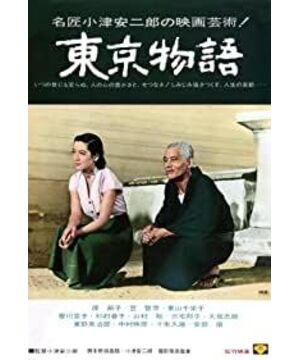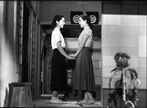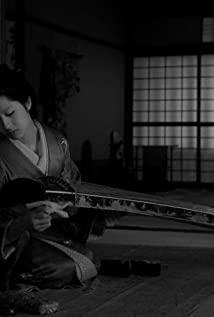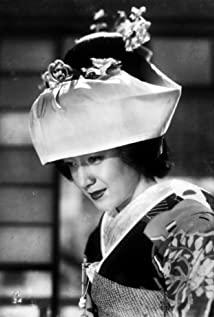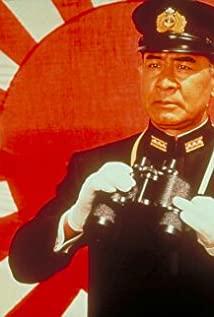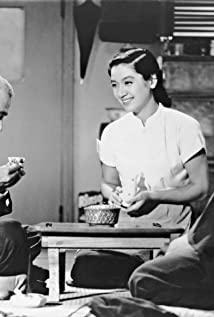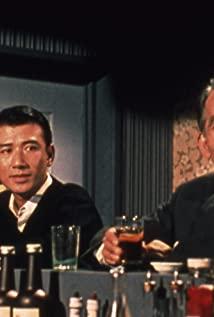We often feel that the pace of life is so fast that we have no time to stop and breathe freely; we often hate our own hypocrisy but inexplicably hypocritical; we often ridicule others, but at the same time, we are inevitably collaborating with others, both mocking others and insulting others. Own. In fact, when human beings control everything with infinite possible power, it is often that they cannot control themselves. What a deformed circle is this! However, there is always such a kind of person who is exceptional. He is in the hustle and bustle but only cleans one side, naively and stubbornly presents the incompleteness of human nature and the shortcomings of life, and warns the world with the universal hypocrisy of human nature, like a dose of gentleness and bitterness. The decoction of medicine was spilled on people's unconscious but festering wounds. He is Ozu Yasujiro. Ozu lived alone all his life. In the early days, the trustee introduced him to work at the well-known Shochiku Film Company Kamata Photographic Factory. Then he enlisted in the army and participated in World War II. He became a prisoner of war in Singapore for half a year before he was sent back to the country. After returning to China, he returned to his old business until the last film "The Taste of Saury", where more than 50 films were shot. Most of the early black and white silent films, influenced by many Hollywood films, quality and style vary, "Late Spring" can be regarded as a watershed in Ozu's art road. Since then, it has gradually formed its own style, mostly with family trivialities, secular warmth and cold as themes, slowly The narrative rhythm is like water flowing gently. In the language of extreme self-esteem and restraint of repression, it gently and gently spreads out the desolation of the world, and lays the fire of hope in this desolation. It is Ozu's disappointed but not desperate creative mentality that still has light in the gloom, which makes his works reveal the insight and wisdom of a secular philosopher. Just imagine, if there is no such innocent and stubborn light, if there is no stubborn adherence to film art by Ozu Yasujiro, in addition to the endless turmoil in the movie world, after the bizarre picture flashes back, that one longs for peace and palpitations. How lonely is a moving heart. "Tokyo Monogatari" is one of the works shot when Ozu's style has become established and the artistic sense is still at its peak. The background of the film is that after the defeat of Japan, the society was in chaos. Due to the deaths in the war and the forced livelihoods of the people after the war, the traditional Japanese families were facing the dilemma of falling apart, and the whole society was in a period of transformation. In this context, Ozu focused his lens on the daily neglected life, using a simple and natural image style, to show the usually neglected relationship, loneliness, death, etc. in a kind of religious ethics, like a magnifying glass. , After magnifying the fragmented life, what we see is sad helplessness and human selfishness. The film uses the clues of an old couple who went to Tokyo to visit their children because of their leisure time. It tells the story of two old people who were left out after they went to Tokyo. The eldest son, Koichi, is a doctor in the community. The arrival of his parents did not bring the surprise of a long-lost reunion in this family. The trouble was added a lot. First, the grandson grumbled because he made room for his grandparents and there was nowhere to put the desk. Later, because Koichi was busy at work, he cancelled his Sunday outing plan, which caused the children to complain. The arrival of the parents made the family of four suddenly crowded, the son's busyness and reticence, the grandsons full of complaints, made the old couple feel abrupt. When the mother said to the grandson who was jumping and picking wild flowers, "When you grow up to become a doctor, I will be gone." One sentence expresses the indescribable feeling of loneliness in the old man's heart. Daughter Zhixia is a hairdresser. The arrival of the two old men has brought a lot of inconvenience to her work. When a customer asked who the two old men are, she downplayed that she was a fellow and rebuked her husband for buying expensive pastries. For the elderly to eat. In order to get rid of their parents and provide them with convenience, Zhixia and Koichi jointly financed their parents and called them "Travel to Atami." The noise of Atami made the two elderly people very uncomfortable. Insomnia caused by excessive noise at night also laid hidden dangers to the health of the elderly. In the picture, when two old people walk one after another on the embankment in the setting sun, the boundless sea is rippling with gold. In the distant view, two old figures are walking staggeringly. The sad and tragic atmosphere makes the film's loneliness and loneliness. The beauty is explained incisively and vividly. The old man did not complain about the indifference of his children, and his father only expressed the confusion and helplessness in his heart by saying "Zhi Xia used to be very good to people, but now the daughter is older and looks like a stranger". Compared with the feeling of alienation from their children, the life fragments of the two old people who know each other and live on each other are a bright color in the film's indifferent atmosphere. Drunkenness and drunkenness annoy people when young, but the most pitiful when they are old. The world is so unpredictable. Just like this trip to Tokyo, I wanted to get happiness and comfort from my own children, but unexpectedly I got warmth from my widowed daughter-in-law for many years. When the old man smiled and said: "What kind of hospitality, let me sleep on the bed of my dead son". The seemingly plain sentence is full of true feelings, which not only shortens the distance between life and death, but also brings the heart between mother-in-law and daughter-in-law closer. The effect of Ozu's lines of thunder in silent places can be seen everywhere in the film, and the profound meaning in the dialogue is also one of the biggest features of the film. When Ozu deals with the character, he does not attribute human nature to good and evil, but explains it from multiple angles to make the characters fuller and more vivid. Although the son is indifferent, the parents are more dedicated; the daughter is snobbish, she cried and revealed her true feelings at the moment when her mother died; although the daughter-in-law was sincere and enthusiastic towards others, she admitted that she was lonely and fragile. Everyone has a side that people hate. They are all very ordinary, just like the people around us, just like ourselves. It is these ordinary characters and trivial things that make the film more convincing, because you can see your shadow in them. The film has always laid out the story in a soothing and gentle tone. Whether it is the peaceful smile of the parents or the physical movements in the small format, the film has a kind of open-minded and calm atmosphere. While perfectly showing the customs of Japan, the wise man’s Elegance is also full of it. The story is over. The old man sat alone in the sunshine and said to passers-by: "I had known this, I should treat her better". However, the years are ruthless, and things are right and wrong. If there is "early knowledge", how can there be "such"? When the old man spends a long time alone, it should be his greatest pleasure to count the past. Even those "troubles, losses," have become very beautiful in the memories. As my daughter-in-law Kiko said: "I really miss those troubles." Cherish the people in front of you!
View more about
Tokyo Story reviews


